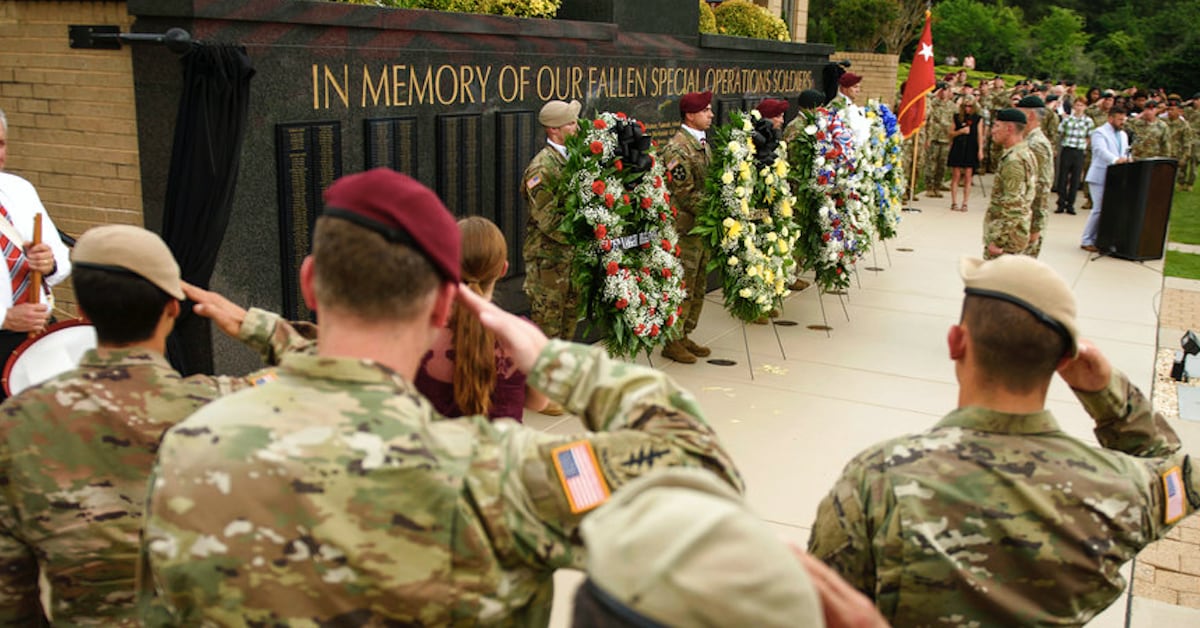Senate lawmakers temporarily blocked the promotion of an Army colonel formerly in charge of 3rd Special Forces Group to brigadier general, the New York Times first reported Saturday.
Col. Bradley Moses was one of the Special Forces officers involved in the ambush that took the lives of four U.S. soldiers outside of Tongo Tongo, Niger on Oct. 4, 2017.
Moses was expected to make brigadier general following an assignment in Afghanistan, but Senate members are delaying the matter, the Times reported, though he could still ultimately be promoted. Members of 3rd Group wrote to lawmakers calling for Moses to be punished, people familiar with the matter told the Times.
The investigation following the Tongo Tongo ambush was criticized for placing much of the blame onto lower ranking officers. The leader of the ambushed ODA, Capt. Michael Perozeni, shouldered much of the blame until it was revealed that he asked not to continue the mission prior to the attack, according to the redacted investigation.
The ODA was told by Moses’ subordinate and battalion commander, Lt. Col. David Painter, to continue the mission, a decision Moses also approved, according to the Times. Painter was punished following the ambush and not ultimately promoted to full colonel.
Family members of the fallen soldiers and lawmakers have long criticized the Pentagon’s handling of the investigation. The ambush itself highlighted institutional problems within the U.S. mission in West Africa, to include poor resourcing of medical evacuation capabilities and a lack of air support for troops on the ground.
RELATED

Maj. Alan Van Saun, the ODA commander who was home on paternity leave at the time of the ambush, received a formal reprimand after the investigation concluded, effectively ending his Army career.
Investigators determined he failed to prepare his soldiers for the deployment, “a conclusion tied to a training event that occurred prior to me even taking command of the organization,” he wrote in a New York Times opinion piece in October.
“Following a complicated tragedy with no clear proximate cause, First Special Forces Command issued reprimands with inaccuracies and inconsistencies, focusing on predeployment training and personnel issues, instead of operational decisions made leading up to the ambush,” Van Saun wrote.
“Senior leaders within Africa Command and First Special Forces Command presented their findings to the families of the fallen based on circumstantial evidence, which left them with more questions than answers," he added. “Africa Command held a press briefing, that, for the most part, admonished one of my Green Beret teams for their pre-mission planning and preparation, but barely mentioned the decisions made above their level."
Kyle Rempfer was an editor and reporter who has covered combat operations, criminal cases, foreign military assistance and training accidents. Before entering journalism, Kyle served in U.S. Air Force Special Tactics and deployed in 2014 to Paktika Province, Afghanistan, and Baghdad, Iraq.





